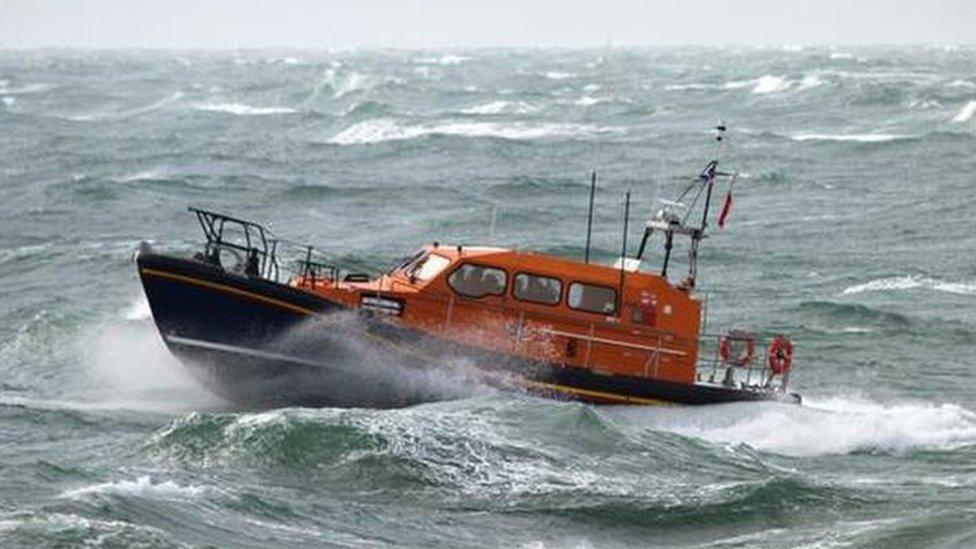Lifeboat crew back after 'relationship breakdown'
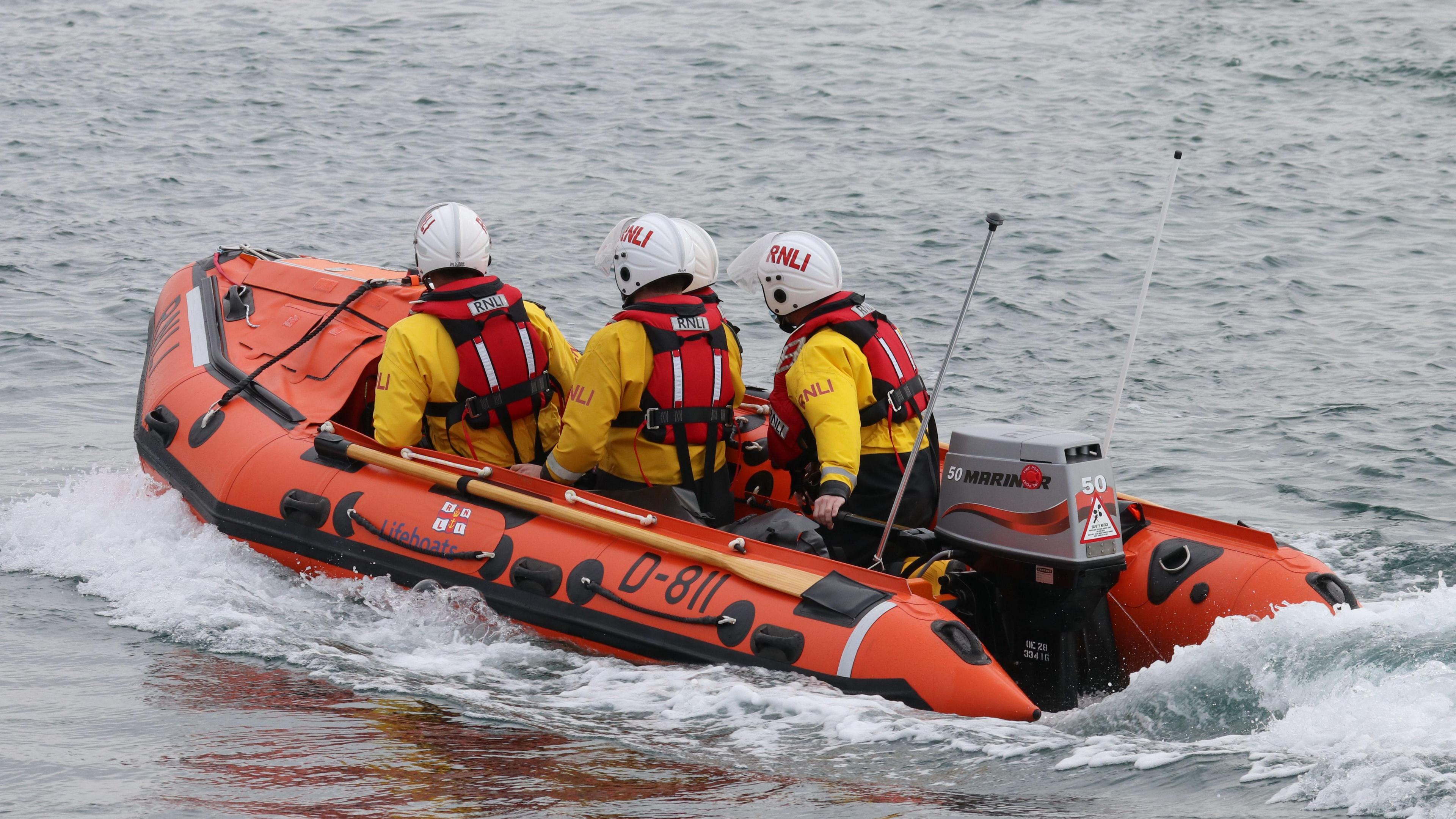
The D-Class lifeboat is back on the water in Pwllheli as operational training returns
- Published
A lifeboat station which closed after a "serious breakdown" in relationships is back in training.
All operations at RNLI Pwllheli in Gwynedd were suspended last August pending an investigation.
The station's crew were then all stood down at the beginning of the month due to "continuing division and disharmony".
Two-thirds of the crew have now agreed to return as volunteers, with a view to starting inshore lifeboat operations next month.
"It has been a challenging time for the crew here in Pwllheli. We have launched a robust, thorough investigation," said Danielle Rush, from the RNLI Wales and West.
"We were currently implementing all the outcomes of that, and it became really apparent there were continuing division and disharmony here, so we did take that really last resort step of resetting the station."
Photos mark 200 years of life-saving at sea
- Published23 February 2024
Lifeboat named in memory of coxswain
- Published2 September 2017
Lifeboat's first shout 'saves a life'
- Published30 July 2017
Training for both onshore and lifeboat crews will now last for two weeks, before the inshore rigid inflatable D-Class boat is put back in service. The D-class boats are responsible for about 70% of all RNLI rescues.
The volunteers hope a successful return for the inshore boat will also herald the return of its larger all-weather Shannon-class boat, which was withdrawn during the dispute and is being used for training at the moment at other RNLI centres.
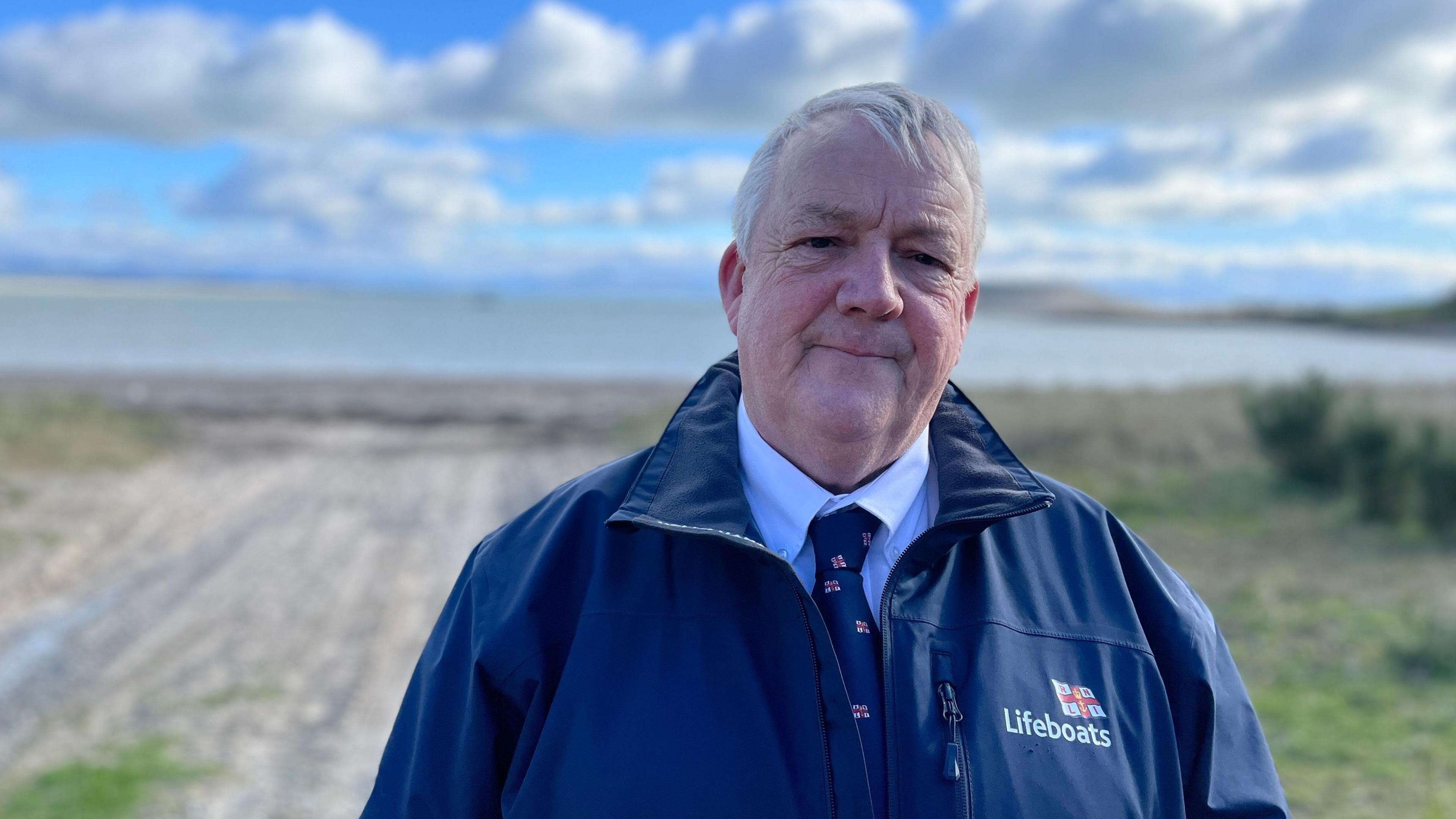
Crews are "raring to go," says the station's management chair, Gerallt Williams
"Feelings amongst the crew are very, very positive," said Gerallt Williams, who chairs the management group at the Pwllheli station.
"We're really looking forward to getting back to what we train to do, to go out there and save lives at sea. Everyone is so enthusiastic and raring to go.
Mr Williams thanked the local community for their "patience and their support that they've offered us all during this period".
"I'm very hopeful that we will see the return of the Shannon here to Pwllheli. That is our ultimate goal."
One former volunteer at the station who is not returning has told BBC Wales that they still have concerns about the station operations.
A letter to the RNLI also questioned the independence and strength of investigations into complaints.
In a statement, the RNLI said: "The investigation was completed by experienced managers and every crew member had the opportunity to share information and speak to us in confidence.
"Where appropriate, action was taken and we are confident processes were followed fairly."
Welsh language 'helpful'
The RNLI has also rejected claims that the use of the Welsh language was an issue, following reports in a national newspaper.
Ms Rush said at lifeboat stations with Welsh-speaking communities like Pwllheli, "it is recognised that during training and conversationally that Welsh is used.
"It can be helpful when Welsh is the first language, it helps with that coaching and mentoring."
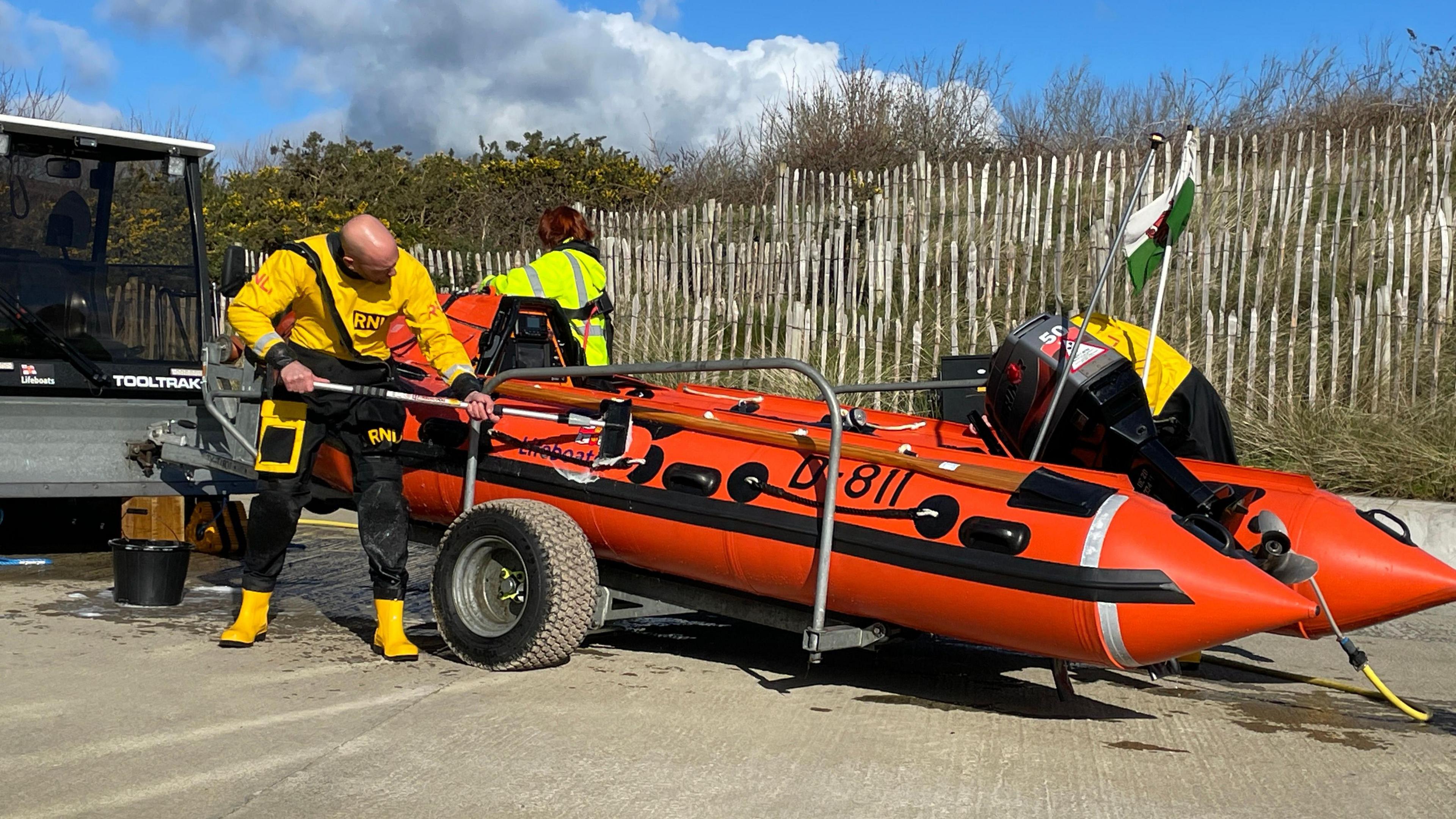
After getting out on the water for the first time in months, it's time for the inshore lifeboat to get scrubbed down
But she added that the lifeboat charity also recognised that English was the "internationally recognised maritime language".
"It is really important that on board the lifeboat, in potentially really difficult situations, that English is used, and then everyone understands commands.
"As part of the investigation, we will be looking at our multilingualism policies, and will be looking at training to ensure everyone understands those proper commands to use on board the lifeboat."
RNLI managers said the charity "prides itself on being a diverse and inclusive organisation" and was confident it had dealt with the investigation properly.
"Two-thirds of the crew are back here, we've got the lifeboat back out on the water, we now wish them all the best with training and the crew are really keen to get back to doing what they do best," added Ms Rush.
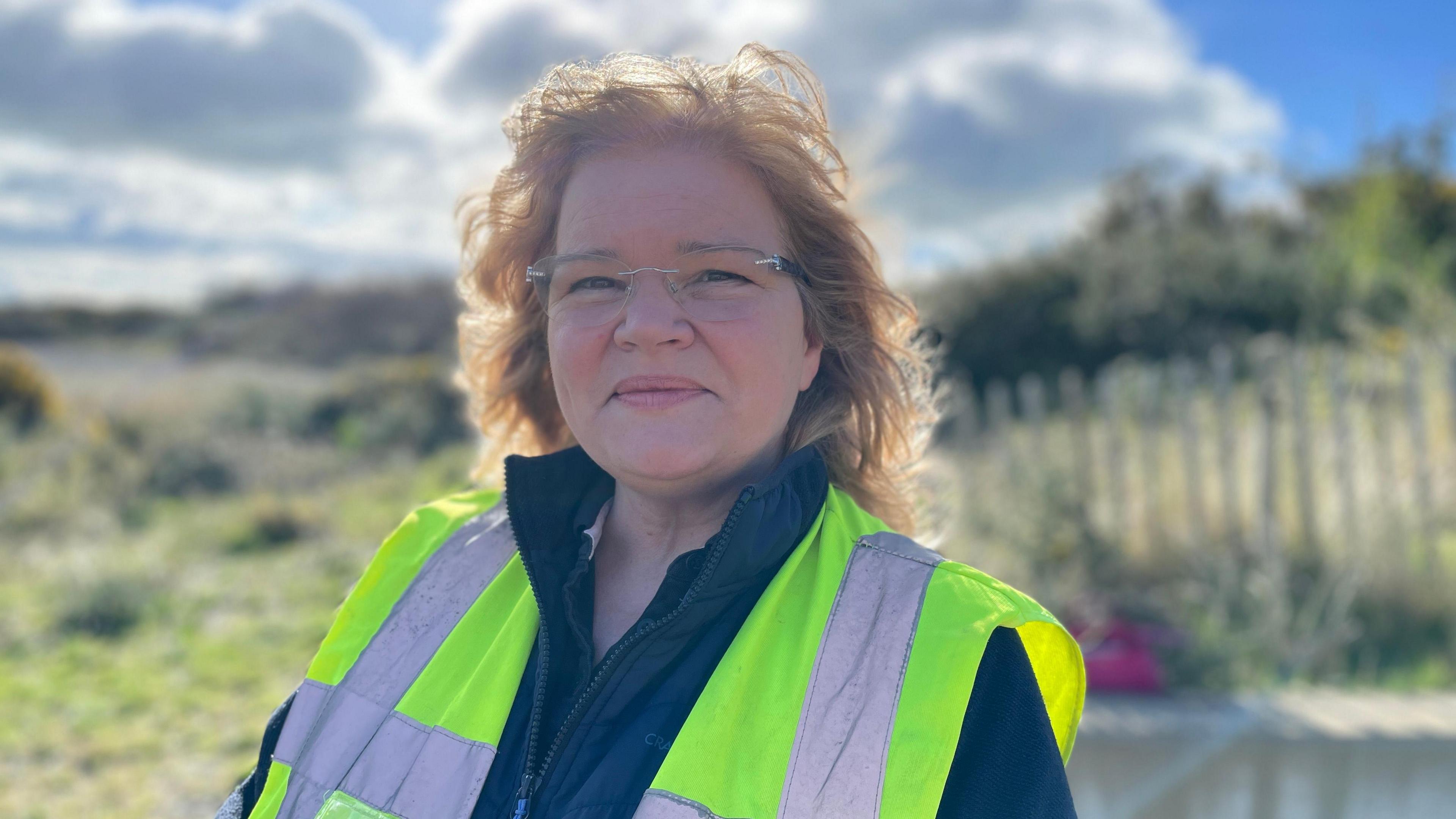
Shore volunteer Caroline Jones says the lifeboat station plays an important role in a "sailing town"
One of those is onshore team member Caroline Jones, who said: "Life has been a bit quieter for the last few months, so I'm looking forward to starting back and it's going to be full-on from today.
"It's a sailing town, there are people on the sea all the time.
"It's a sheltered bay - people on their paddle boards, their kayaks - it's important to have a boat like the D-Class that can go out very quickly to rescue and save lives at sea."
Related internet links
- Published1 February 2024
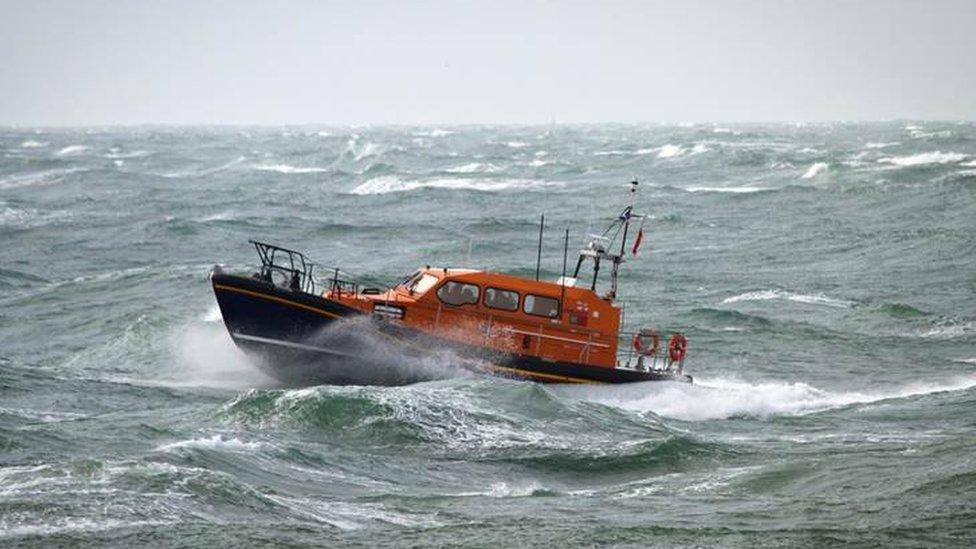
- Published18 December 2020

- Published9 October 2018
